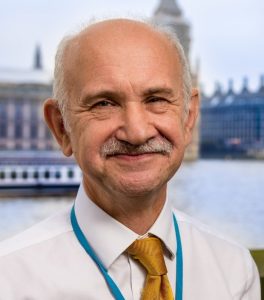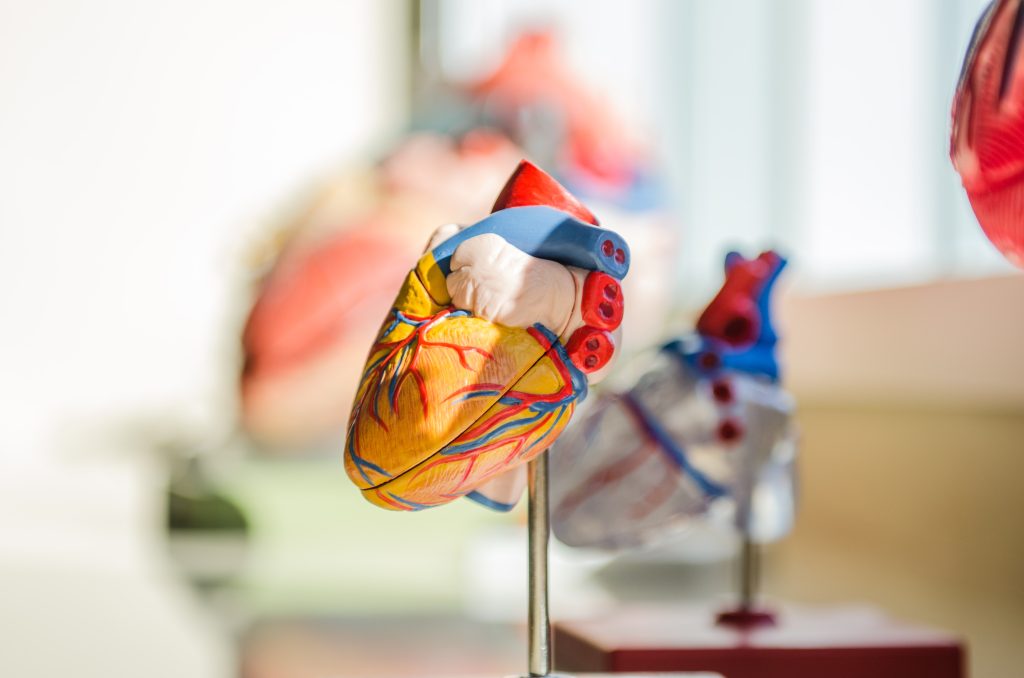Our history
Heart valve disease is increasingly common as a cause of ill-health and death. Yet new strategies and techniques for treatment are not getting to patients in need.
The British Heart Valve Society was founded in 2010 to improve the quality of care for patients with heart valve disease by addressing barriers to best practice.
BHVS is open to all involved in the care of heart valve disease not just the core valve team – cardiologists and surgeons, nurses, physiologist/clinical scientists – but crucially all other relevant medical disciplines – general practitioners, radiologists, specialist in cardiac computed tomography or cardiovascular magnetic resonance, haematologists, basic scientists, commercial representatives, healthcare managers and, crucially, patients and their relatives or carers.
BHVS is officially associated with the British Cardiovascular Society (BCS), endorsed by the Society of Cardiothoracic Surgeons of Great Britain and Ireland (SCTS) and affiliated with the British Journal of Cardiology. It also collaborates with other groups on statements or training days – British Society of Echocardiography, British Cardiovascular Intervention Society.
Founder of the Society
Although John had diverse research interests he was most known for his love of heart valve disease which developed after his MD thesis on the early detection of prosthetic heart valve dysfunction. He was on the editorial board of the Journal of Heart Valve Disease, on the advisory board of Heart, an invited expert on the International Standards Organisation committee on cardiac valve prostheses, a member of
the BSAC working group on the prevention and treatment of infective endocarditis, and the Journal of the American College of Cardiology working group on heart valve disease and prosthetic valve failure.
As a consultant he founded the Valve Study Group and the Charity “Research Echocardiography” to further evaluate prosthetic heart valves and to investigate the natural history of heart valve disease. His work included randomised studies of designs of replacement heart valves, core lab work and studies to determine the optimal timing for patients with aortic stenosis. These interests resulted in the development of a multidisciplinary valve clinic which ultimately became the prototypical example for similar clinics across the UK and Europe, and the foundation of the British Heart Valve Society (BHVS) of which John was the founder member and first president (2010- 2013).

Improving detection
- BHVS has published a method of greatly speeding up the processing of back-log and new diagnostic echo requests.
- Members of BHVS are researching methods of improving access to echocardiography which is the key to diagnosis.
RECOGNISING HEART VALVE DISEASE AS A DISTINCT ENTITY
Most patients were being looked after by general cardiologists or other physicians without special knowledge of valve disease. This meant that important advances in international guidelines and research were not getting to where they were needed. BHVS has:
- Greatly encouraged specialisation in heart valve disease
- Written the first heart valve training syllabus
- Established standards for competencies in heart valve disease
- Established a self–nomination register for valve competencies
IMPROVING CARE IN HOSPITALS
- BHVS established valve clinics as best practice in the UK and has published guidance on how to set up a valve clinic
- BHVS was prime-mover in setting up standard for specialist heart valve centres in Europe including the UK and these are now incorporated in international guidelines;
- Education and training of health professional with annual training days and more advanced problem-focused symposia.
IMPLEMENTING IMPROVEMENTS
BHVS engages with national bodies with the influence to disseminate their statements and other improvement plans. These include British Cardiovascular Society, NHS (E), government working groups. Our current president, Madalina Garbi, was The Topic Adviser for the NICE guidelines on heart valve disease.
NATIONAL AND INTERNATIONAL ENGAGEMENT
- ISO committee establishing international standards for safety testing new prosthetic heart valves – John Chambers had been the clinical and imaging representative on behalf of the British Standards Institute (BSI). Benoy Shah has now taken over. Members of BHVS have been on numerous US and European guideline committees BHVS is a stakeholder in numerous projects including the NICE guidance on Infective Endocarditis.
- Madalina Garbi was honorary secretary of the ESC Council on heart valve disease, organiser of the EuroValve meeting in the UK and co-director of the PCR Imaging Valves Course.
PATIENT ENGAGEMENT
Patients are naturally the stable element at all levels of care from community to DGH to cardiac centre. They are in the best position to confirm that their care is at the highest standard – provided they know what those standards are. BHVS puts patient engagement as a priority and:
- Has a comprehensive set of web-based patient information leaflets which can be downloaded
- Has written a comprehensive book to cover the nature of valve disease and aspects of care which are not normally covered in information leaflets
- Includes patient focused sessions in its annual meetings
- Addresses patient questions by Email where these involve general information and not specific advice about individual cases
- Aims to develop a patient engagement in ways uncovered by the recent survey
- Is developing patient mutual support groups. This will improve communication with clinicians and offer support to Trusts
BHVS is the ‘go-to’ place for a national opinions on all matters concerning heart valve disease.

